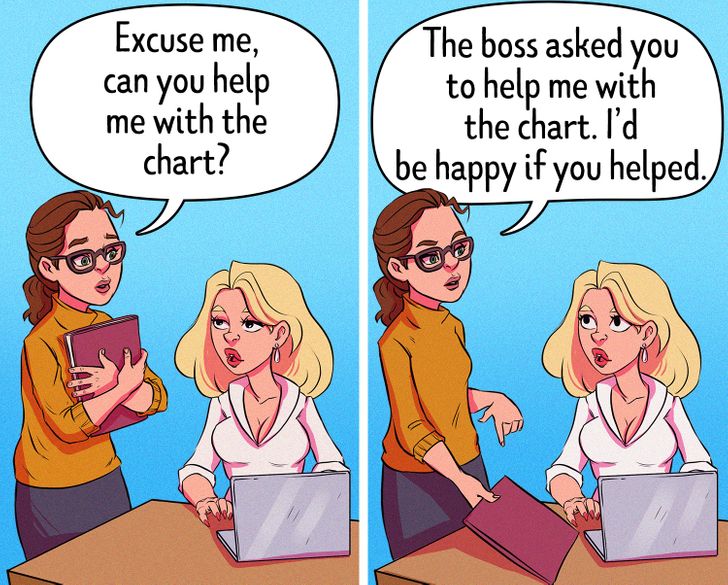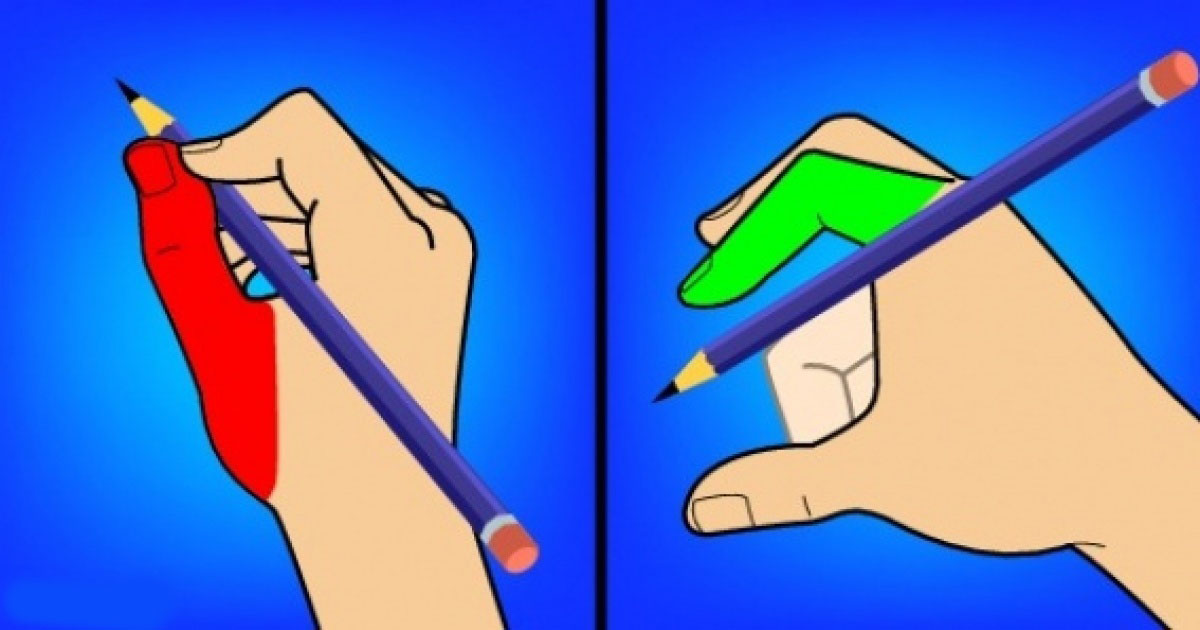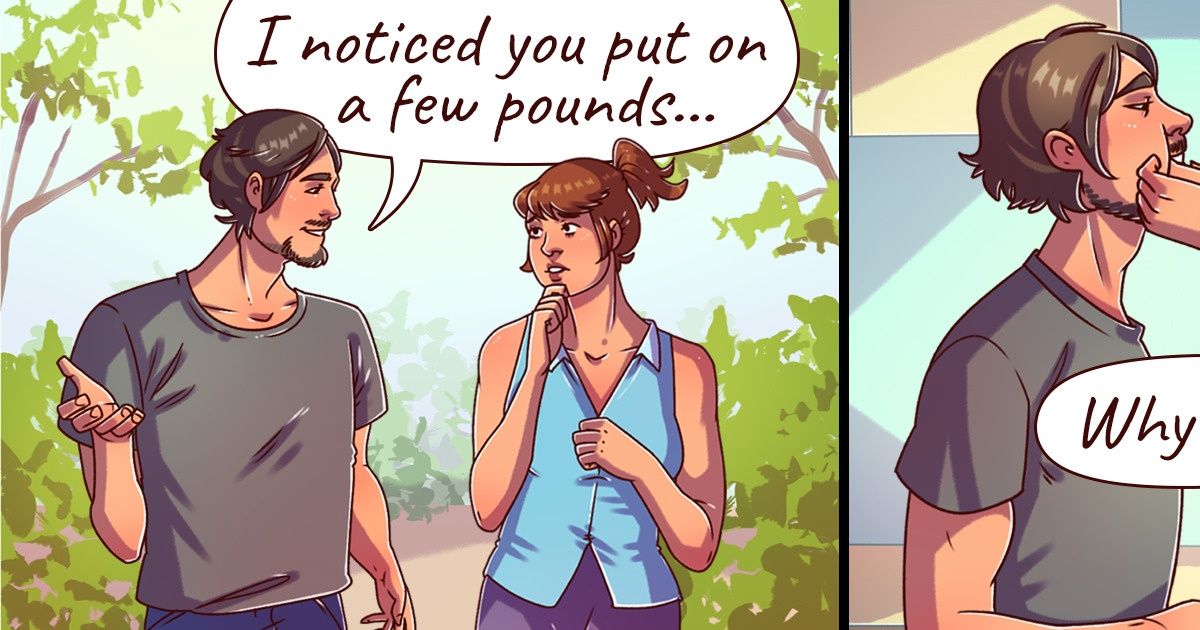Ill-mannered people think that the word “sorry” is only used by nerds, and good-mannered people tend to apologize when it’s not necessary. Did they bring the wrong order? Sorry, I didn’t order this. Why am I not laughing? Sorry, I’m in a bad mood. All this sadness should improve the situation, but it turns out that it can ruin your self-esteem.
We figured out which things you should never apologize for.
Things You Don’t Have to Apologize For
Your Marital Status

When people are asked about their personal lives, they often begin to explain things with apologies, sometimes even to complete strangers. It’s all due to the guilt we feel when we realize that we don’t conform to social norms.
Your marital status, your attitude toward having children, whether you want them or not, is entirely your problem and no one else’s. Instead of apologizing to people, pay attention to how you feel about doing so. Do you feel bad? Try to apologize for less to see how this habit affects your self-esteem.
As much as we say that we shouldn’t feel guilty about not wanting to have children, the reality is that cultural norms and social standards say that we should want to have children. So when we feel internal that we don’t want to, society tells us that we are “wrong” in feeling that way. This turns into guilt, shame, or self-loathing, whatever you want to call it. As a married woman who did not want to have children, I had to face enormous guilt for going against the norm. Let’s not pretend that it is not a thing. © Lindsay O’Brien / quora
Chasing Your Dream
A person chasing their dream may be making a bit of money at first, which is not very smart as some people think. When someone says this to that person, they start to feel worried and embarrassed. And to get out of this conversation in some way, they are ready to apologize for their actions and just say “sorry” instead of fighting for their opinions.
Apologizing when you shouldn’t be a compliment: You think you’re just being careful of other people’s feelings and you try to change the subject, but when you do, they think you’re not confident. The person may think that they do not believe enough in their ideas to fight for them, according to psychologists.
Never apologize for being yourself, for having a dream and opinion, or for thinking critically or questioning conventional wisdom. Ludovico Buonarroti was a wealthy upper-class man who was part of the Italian government and lived in the 15th century. His son was different, however, with an interest in tools and clay, which were considered lower-class skills. Saying: “No child of mine is going to use his hands for a living,” Ludovico mocked his son. The boy grew up but refused to give up his dream. Soon, a block of marble was magically transformed into the statue of David. That man was Michelangelo. © JBrandon Redlinger / quora
Other People’s High Expectations

In this case, apologizing may be an attempt to avoid a potential conflict that started because someone expected other words or actions from you. By apologizing, you can avoid conflict, but you will feel emotionally depressed. Not apologizing is also an option and is not always a bad thing.
In fact, refusing to apologize can even improve your self-esteem. For example, when someone says to you, “Oh, I was hoping you would do that,” you shouldn’t say “I’m sorry” and you don’t need to blame yourself for not following someone else’s standards or expectations. This is how you avoid emotional trauma.
Sometimes I feel a bit uncomfortable talking to people. I feel like I didn’t do or say something that they wanted me to do. For example, if I have plans with someone and let’s say they disappear, they stop receiving calls or texts, and then BOOM: we meet. I will apologize profusely. © Nutadaoi / Pikabu
Not Knowing Something
People often apologize for their lack of knowledge to avoid embarrassment. But not knowing something is perfectly normal and also recognizing the fact that you don’t know something. People who don’t know something that doesn’t look ridiculous are people who pretend to know everything it seems.
Take a journal and write down all the times you say “I’m sorry.” You will be surprised how often you will use this word without even realizing it.
Speak a second language poorly. I have seen this a lot, I have also been in the same position and felt the need to apologize for not speaking a second language correctly. Learning a second language is not easy and trust is much easier when the people around you are less critical and more understanding.
I am very grateful to people who learn and try to speak other people’s languages, however poor they may be at first. And I never accept their apologies when they make mistakes because there is nothing to apologize for. You don’t apologize for trying to improve. © Gabriel Tambwe / quora
Telling The Truth

We often regret it, even when being frank is extremely important. We want to tell the whole truth as it is, but we feel guilty for hurting people with the truth, so we apologize in advance. We apologize for avoiding social tension even before it appears.
But not everyone has the courage, to tell the truth. And if you are still uncomfortable and feel the need to say, “Sorry, I had to say that,” you should explain that you are apologizing out of sympathy and not because you did something wrong. This is very important for your self-esteem.
Asking For Help

For many people, apologizing is directly related to courtesy, so “I’m sorry” has become the starting point of any sentence. It seems that if we are asking people for something, we should start with an apology because we are wasting our time.
However, you do not need to apologize if you need information. The next time you want to start a request with “sorry”, try replacing it with “Could you please?”
I know a girl who always says “sorry” no matter what. We work together and she says it all the time! We openly said that she had to stop apologizing for every word she said. For now, it helped. © elenaum75 / Pikabu
Are you in the habit of apologizing to other people, even when it’s not necessary? Why do you apologize?









